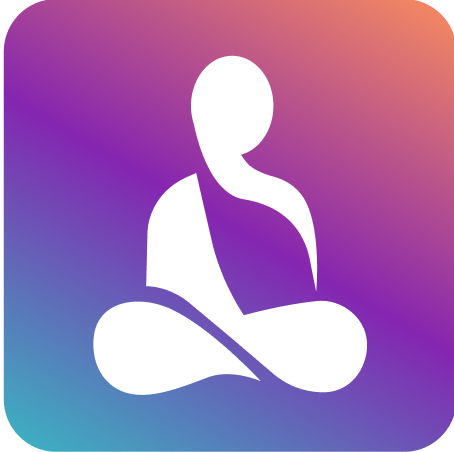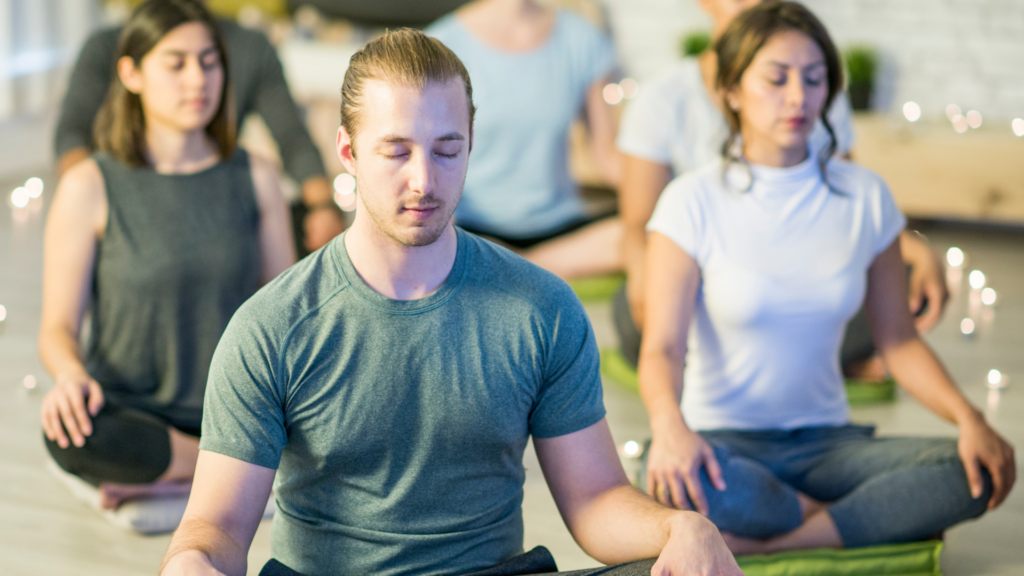All of the most common meditation questions, answered!
Is Meditation Right for Me?
Meditation is for everyone. Whether you want to improve mental focus, reduce stress and anxiety, get better sleep, improve your happiness or self-confidence — or for a host of other reasons — meditation can help you.
What Scientific Evidence Is There to Support Meditation Benefits?
The physical and mental benefits of meditation have been studied, researched, and vetted hundreds of times over the past 50 years, and the results are always the same: meditation works! Science has shown that it’s beneficial for improving sleep quality, increasing self-awareness, boosting emotional health, assisting with pain relief, reducing blood pressure, and many other benefits.
How Should I Breathe in Meditation?
Your breathing will vary depending on the technique. For some, breathing normally is appropriate; others may appreciate deeper, slower, more rhythmic breathing.
Where Should I Meditate?
Choose a designated space in your home or a place you spend the most time in during your day. It could be a favorite chair, a corner of your office, or an entire spare room dedicated to meditation. This space is now your meditation space. Be sure you have a comfortable chair and any other items that might assist you in your practice, such as pillows or a sound box for nature sounds or serene music.
What Time Should I Meditate?
You should meditate at any time that works for you and your schedule. If you are a morning person, you might want to meditate after your morning coffee. Night owls might meditate after their evening tea. Try a few different times if you are unsure until you find the best time for you.
What If I Don’t Have Enough Time to Meditate During the Day?
The hustle and bustle of life often gets the better of all of us. All you need is five minutes to start a daily meditation practice — something we can all find at some point in our day. If you really are busy with back-to-back activities or appointments, try a short meditation practice before bedtime to unwind.
Where Do I Start with Meditation?
Make it easy to get started by first practicing short sessions and then gradually increasing your meditation period’s length as needed. The idea is to get a habit started and to get the mind used to relaxing and turning within. Start small and build gradually in length.
How Should I Sit While Meditating?
At IMIH, we do not believe that physical posture is the key to meditation. Sit in any position that allows you to be comfortable without falling asleep.
How Frequently Should I Meditate?
For most beginners, we recommend completing one five-minute meditation practice per day to start. Choose a time of day that you can consistently incorporate into your routine. It’s not about the duration of your meditation; it’s about the frequency. As long as you complete one practice per day, you are on the right track!
How Can I Make Meditation a Habit?
The best way to make meditation a regular part of your daily routine is to pair it with one of your other daily habits. For example, meditate every day after brushing your teeth in the morning. Or, incorporate meditation into your pre-sleep routine. This will get you into a routine because you are pairing meditation with something you already complete daily.
What is a Mantra, and Do I Need One?
A mantra is a word or phrase repeated over and over to bring a sense of peace. Mantras are unique to every individual because everyone has a different goal they are hoping to achieve through their meditation. An example of a peace-promoting mantra can be, “I am peaceful” or simply, “Inner peace”. This phrase becomes the focus of your meditation practice and can also be used as an anchor to bring you to the present moment.
What Should I Wear While Meditating?
You can wear anything you like as long as it’s comfortable. If wearing a certain item makes your meditation practice more personalized, go for it — as long as it doesn’t cause any undue distraction.
Can I Meditate While Lying Down?
If you cannot sit upright for extended periods or are more comfortable lying down, then lying down for meditation is fine. Be sure to remain alert during your meditation so you do not drift off to sleep. If you fear you might fall asleep while meditating, it’s better to always sit upright in a chair.
I Took a Break from Meditation. How Do I Start Again?
Good habits take time to form and breaks in any new meditation practice are normal. The key to getting back into the habit is to just start right back up again. A good way to return to a meditation practice is to incorporate it into your routine alongside another ritual, such as your morning tea.
Do I Need a Special Chair to Meditate?
Here at IMIH, we recommend creating a peaceful space to complete your daily meditation ritual. That said, you don’t need to buy a special chair or pillow. Use the seating you have, and make your space as comfortable for meditation as you can.
Should I Be Concerned About My Posture?
Sitting upright during meditation keeps you alert so that your mind can be at ease. The more you practice, the easier it will be to sit upright.
What If I Want to Follow a Thought?
Save any thoughts that come up during meditation to explore after your practice has ended. The most effective meditations welcome an ease to the mind and body, where thoughts are set aside, so you can just be. This is the true beauty of meditation.
Are There Different Types of Meditation?
Yes! There are many different types of meditation out there. We like to utilize Mantra Meditation, Visualization, Music & Nature Sounds, among many other forms. Try each one to see which you most resonate with.
My Mind is Always Racing. How Do I Create Peace?
Thoughts will always come up when meditating, no matter how much experience you have. To help slow your mind, try relaxing your body and reducing the speed of your breathing. This can help the mind to settle down as well. The longer you practice meditating over time, the easier it becomes to keep your mind in check and quiet those racing thoughts.
What If Closing My Eyes Makes Me Tired?
Closing your eyes may make you feel sleepy, which is why it is recommended to sit upright in a chair during meditation. Meditation is a naturally relaxing task, so some sleepiness may happen when you first begin to explore the practice. If the issue persists, try choosing another time to meditate when you are typically more refreshed.
What If My Body Feels Restless?
Sitting completely still can cause some to feel restlessness in the legs or feet, depending on how you are sitting. You can find a more comfortable seated position to reduce this feeling. Also, know that the longer you commit to regular meditation practice, the more you will build up your body strength, which will also help to reduce those restless feelings.
How Do I Deal with Fear, Boredom, or Other Emotions That Come Up?
Meditation can lead to a variety of emotions, many of which will vary from day to day and meditation to meditation. Try to put those emotions to the side as best you can and keep your mind clear and centered and your body at ease. Come back to the emotions after your practice if needed.
Can Meditation Help My Chronic Pain?
Chronic pain sufferers all over the world utilize meditation to keep the mind’s focus away from the physical pain. It has been proven that meditation can help relieve some daily chronic pain. In fact, with regular practice, your body will become increasingly adept at focusing away from the pain and onto peacefulness.
Should I Meditate with Others?
Group meditation can help keep you accountable if you want to incorporate meditation into your daily life. In-person and virtual group meditation can be a fun experience for friends and family. Or practice with someone right from your home!






